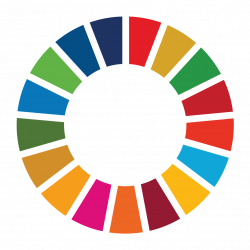Policy
Policy

European DFIs want to act as role-models for private investors that seek to invest in developing markets, but also pave the way in applying high business, environmental and social standards, and in explaining the development outcomes of their projects. European DFIs intend to continue to build on their successes and shared approaches to demonstrate the relevance and effectiveness of private sector finance in developing countries.
Nanno Kleiterp, Honorary Chairman of EDFI
Shared policies
 Responsible Financing
Responsible Financing
EDFIs invest to make a significant contribution towards the Sustainable Development Goals (SDGs) and the Paris Climate Agreement.
We invest with the aim of having a positive impact, and we strive to ensure respect for human rights, and environmental and social sustainability. Responsibly managed private sector enterprises, supported by EDFI members, play a vital part in achieving sustainable development: they create jobs, boost growth, and fight poverty and climate change. Such businesses also set an example for other private enterprises.
EDFI member institutions have endorsed a set of commitments for our approach to responsible financing of sustainable development, encompassing responsible financing, impact management and transparency. The commitments are set out in the “EDFI Principles for Responsible Financing of Sustainable Development.”
EDFI members have agreed on a list of joint ambitions on climate and energy related finance including key commitments to mobilise private investments aligned with the Paris Agreement. The EDFI Statement on Climate and Energy Finance aims to signal a real ambition for the sector while recognising the development needs of the countries European DFIs invest in.
EDFI members have agreed on harmonized environmental and social standards encompassing:
Environmental and Social Category Definitions
Requirements for Environmental and Social Due Diligence
MDB IDFC Common Principles for Climate Mitigation Finance Tracking
EDFI Exclusion List (applicable to mutual financing activities):
EDFI Fossil Fuel Exclusion List (applicable to all financing):
These standards are all reviewed regularly. Benchmarks for the EDFI members are the UN Declaration of Human Rights, the ILO Core Conventions and the IFC Performance Standards on Economic and Social Sustainability and associated Environmental and Health & Safety Guidelines.
Summary on investments and human rights
With respect to investments and human rights, EDFI has prepared a summary of the principles and standards that EDFI members apply to ensure that their operations and those of their clients take due account of their human rights commitments and promote human rights improvements.
Advancing Gender Smart Investing
EDFI members have been actively building partnerships and tools to advance gender finance. over the last years. In particular, EDFI members are committed to mobilising capital to advance women as leaders, entrepreneurs, employees and consumers, using gender-smart approaches, and achieving more pipeline and/or better commercial outcomes.
DFI Market Benchmarking Guidelines
EDFI members aim to provide sustainable, long-term financing on market-based terms, in order to “crowd in” rather than “crowd out” private investors while achieving the intended development impacts. A taskforce composed of expert practitioners from EDFI member institutions has developed this guidance note that considers challenges, limitations and potential best practices for EDFI members – and other DFIs – to follow the principle of financing on market-based terms by using benchmarks.
 Development effectiveness
Development effectiveness
DFIs and IFIs working with the private sector have diverse mandates, structures and shareholders. This also means they use many different systems to track development outcomes. The clients they share often bear an unnecessary burden resulting from their specific reporting requirements.
Efforts towards harmonisation began in 2008, leading to the formation, 4 years later, of a Working Group on Indicator Harmonization gathering over 20 IFIs. They agreed to benchmark indicators for private sector investment operations and seek best practices for shared adoption. The IFIs involved reviewed over 400 indicators while the Working Group grew to include 25 IFIs. In October 2013, they signed a Memorandum of Understanding (MoU) during the annual Private Sector Round table at the IMF-World Bank Meetings, and agreed on a first set of 27 indicators from different sectors. An Addendum to the MoU, signed in the fall 2015, harmonises the definitions of 38 indicators for private sector operations (HIPSO). The memorandum is the conclusion of a wide consensus reached through an iterative consultation process involving many experts and stakeholders from different IFIs and international institutions and represents an important step towards a global standard to measure and report on impact results.
Standardised indicators enable a more efficient, consistent and timely analysis of projects’ impact results and a facilitated collaboration between the public and private sector. They also enhance the sharing of best practices and lessons learned among the different institutions and improve the assessment and coordination of their development efforts.
Finally, clients also benefit from the harmonisation of the reporting standards, as it eases the administrative burden and saves them precious time.
More information on https://indicators.ifipartnership.org
A joint report published in June 2018, called Mobilization of Private Finance by Multilateral Development Banks and Development Finance Institutions 2017, includes for the first time the amounts of finance mobilised by EDFIs following their adoption of the joint framework and methodology. It also contains breakdowns by countries’ income level and regions, and details on areas of investment.
You can download the full report here.
 Taxation
Taxation
European DFIs often operate in challenging institutional environments, where inadequate foreign investment protection laws, dispute resolution mechanisms, judicial enforcement and regulation of foreign exchange transactions increase investment risks substantially. DFIs must take appropriate action to mitigate these risks in a responsible manner, while respecting the sovereignty of countries to decide on their tax policies and regimes. European DFIs recognise that taxation has become a key component of the development of sustainable and responsible businesses, and that the issue of tax avoidance is an increasingly complex problem internationally, given the globalization of value chains and the existence of competing tax systems. International coordination has gradually intensified to develop and enforce tax transparency standards for instance through the launching of the Global Forum on Transparency and Exchange of Information for Tax Purposes in 2009.
European DFIs commonly use intermediary jurisdictions called offshore financial centers (OFCs) when structuring investments because a substantial number of their target countries do not possess the legal, judicial, regulatory and financial infrastructure to accommodate the requirements of institutional investors seeking to invest in the private sector in developing countries. They have established a working group in 2011 to develop and maintain shared guidelines for transactions involving European DFIs and entities domiciled in OFCs. The working group’s role is to review these guidelines with the aim of further harmonising the EDFI approach to investing through intermediary jurisdictions. It concluded that European DFIs commonly participate in investment structures involving OFCs when this fits the purpose of mobilising private finance towards developing countries and thereby helps to fulfil their development mandates.
However, responsible taxation practices extend beyond appropriate usage of OFCs, hence the need to take a more holistic approach and constantly revise these guidelines and commitments. Therefore, the working group has developed a set of principles that have been endorsed by EDFI members for their approach to responsible tax practices. These principles have been finalised and adopted in May 2018. You can download them here.
The EDFI working group will periodically exchange experiences among DFIs, monitor activities and reports of the OECD, EU and other international institutions, and engage in dialogue with relevant stakeholders on these principles.
 Blended finance
Blended finance
Donors and DFIs, including all the institutions in the Private Sector Roundtable, share a goal to mobilise more private capital towards developmental priorities. Scaling up the use of blended finance in the private sector – the strategic use of concessional finance along DFI and commercial investment – has now become a key driver in pursuit of the SDGs.
The private sector development institutions adopted a set of five principles for the use of blended finance in 2013: additionality, crowding-in, commercial sustainability, reinforcing markets, and promoting high standards. These principles have been enhanced with more detailed guidelines in 2017 developed by the DFI Working Group on Blended Concessional Finance for Private Sector Operations. They include how to promote commercially sustainable solutions using minimum concessionality. They also state the need for high social, environmental, and governance standards. The working group also agreed to exchange best practices, pilot a data-gathering exercise, and examine case studies to support the development of these enhanced principles. Other institutions are welcome and encouraged to join these efforts.
The DFI Working Group has released a report DFI Blended Concessional Finance Working Group Joint Report (2021), which highlights the implementation of blended concessional finance by DFIs and MDBs (including 15 EDFI members) in 2020, and the DFI own account and private co-finance invested in transactions alongside the concessional funds. Data shows that in 2020 DFIs financed projects with a total volume of more than $11.2 billion supported by blended concessional finance. Concessional funds committed to these projects via DFIs were approximately $1.6 billion. The total volume of private sector finance leveraged was approximately $3.0 billion, and DFI own-account investments in these projects were about $5.3 billion. The report also details progress made by DFIs, e.g., in implementing a set of Enhanced Principles on the operational use of blended concessional finance in private sector operations.
The 15 European DFIs are also part of the Blended Finance Taskforce, which also includes the OECD Development Centre and Convergence. This taskforce seeks to bring influential thinkers from the private sector to a pivotal question in global development: how to bring about a step-change in the mobilisation of private investment in developing countries. The taskforce aims to increase private sector engagement on these issues (institutional investors, regulators, philanthropists) and to raise the profile of blended finance as an excellent mechanism to achieve the SDGs well beyond the typical development policy and development finance circles. You can read more about the role of blended finance in achieving the SDGs in the Policy Perspectives, a document published by the OECD. The OECD DAC Principles for Unlocking Commercial Finance for the SDGs were approved at the DAC High Level Meeting on 31 October 2017. You can read more about the principles here.
This website uses cookies for analytic purposes Continue without cookies - Yes, I accept cookies.
Read more